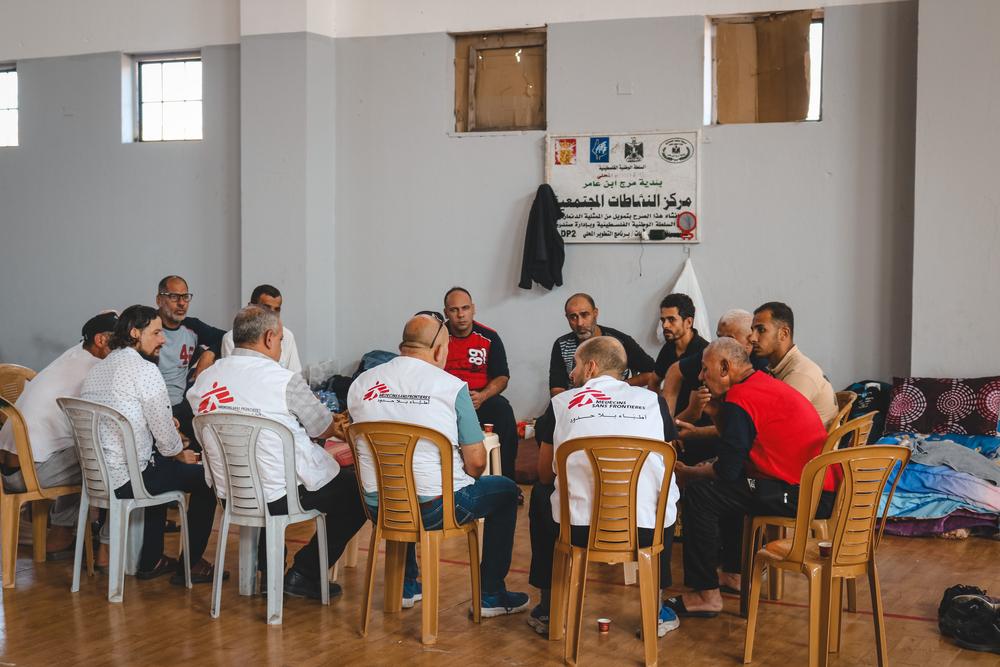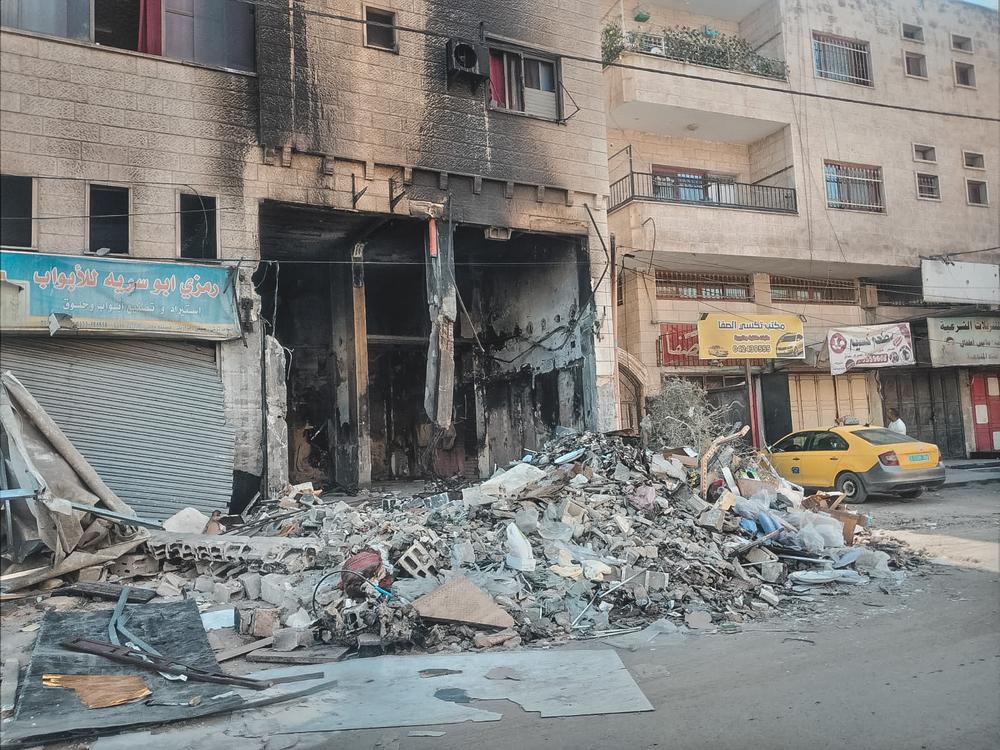Palestine: Gazans displaced in West Bank long to return home

Doctors Without Borders teams are conductiong mental health support to displaced Gazans in the West Bank in displacement centres where they are sheltering. West Bank, Palestinian Territories, October 2023. © Faris Al-Jawad/MSF
Following the attacks carried out by Hamas on 7 October, thousands of Gazans working in Israel had their permits cancelled. According to the Palestinian Ministry of Labour, around 6,000 are now displaced in the West Bank, some living in deplorable conditions. Doctors Without Borders / Médecins Sans Frontières (MSF) teams support them through donations, including medications for non-communicable diseases, and also offer mental health support.
“Before 7 October, everything was OK for me” says Hussein*, 62, who lives in Gaza but had worked in Israel for 37 years before the current war in the Strip. “I would go to work in Ashdod. Sometimes I would sleep there, and sometimes I would return to Gaza to visit my family and stay with them.”
To make a living for his family, Hussein painted houses and worked in farms in Ashdod, a city in Israel about 35 to 40 kilometres north of Gaza.
“I was treated well, and I have a lot of Israeli friends,” he says. “The day before the 7 October attacks, I was drinking coffee with my best friend at the place where I lived. He’s Israeli, and I met him while buying vegetables in the market. I used to bring him and his family some fruits and vegetables from Gaza. Our families quickly became friends, too.”

The remnants of a destroyed building in Jenin after an Israeli incursion on 1 November. The harrowing bloodshed in Gaza is spilling over into the West Bank, where 141 Palestinians have been killed since 7 October. West Bank, Palestinian Territories, November 2023. © Faris Al-Jawad/MSF
But on 7 October everything changed for Hussein. “I was sleeping when my friend and another man entered my room and started beating me with sticks. They shouted, ‘your people are killing us here and you are sleeping in our houses!’ They unleashed their dogs on me. They bit and ripped my stomach and torso.”
After 10 minutes, Hussein managed to run away, but it took him 30 minutes to reach a safe place.
“I called an Israeli friend of mine, who came to pick me up. He took me to another friend’s house, and I hid there for 10 days without seeing the sun. On 18 October, I got a taxi and came here to the West Bank.”
Hussein arrived in Ramallah, West Bank’s main city, and decided to head north to Jenin, where many centres run by the Palestinian Authorities are hosting hundreds of displaced Gazans.
Our teams travel to these centres to provide medical donations, including medications for non-communicable diseases, and offer mental health support. Some patients have reported to our teams that they were beaten, humiliated and abused while being detained by Israeli forces since 7 October.
“The people here are truly kind. I was not expecting it,” says Hussein. “But my family is in Gaza City. My wife and children live there. Sometimes I manage to reach them by phone. They tell me how the situation is over there. It’s terrible.
I just want to live in peace. We do not want to bother anyone, and we hope no one bothers us. To live in peace within our families, our children and grandchildren. Palestine is my country, wherever I am, it is my country. I long to see my family in Gaza.”
Today, Hussein believes that he will never be able to go back to Ashdod, the city where he used to work.
“The situation can never be the same,” he says.
*Name has been changed for confidentiality.
Will you support our emergency response work?
Help us provide lifesaving medical care during emergencies by making a donation today.







